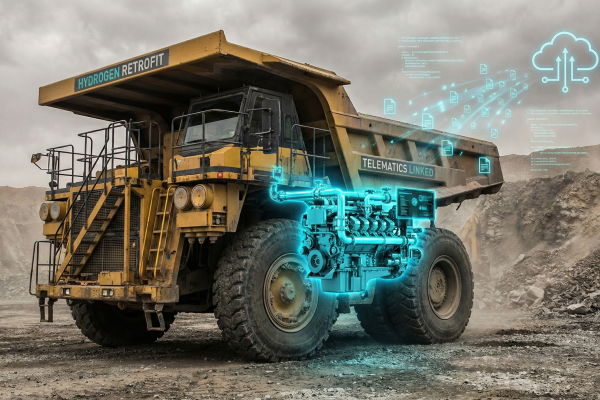September 20th, 2021 | 13:09 CEST
Infineon, BrainChip, Nvidia - The chip shortage remains
The automotive industry was one of the first to feel the chip shortage. While supply chains typically operate on a just-in-time basis, they had ordered fewer chips due to the Corona Crisis. Then, when it was already too late, they realized that the economy was going unexpectedly well and the chips were running out. However, due to the pandemic, there were restrictions worldwide, so it was impossible to produce and deliver as usual. In addition, the Suez Canal was blocked, and, most recently, a port in China was also completely closed. The supply chains are still disrupted. At the same time, progress goes on and on. Artificial intelligence, cloud computing, autonomous driving, electrification and co. all require chips. Factories are running at full capacity, and yet demand cannot currently be met. Today we analyze three companies from the chip industry.
time to read: 4 minutes
|
Author:
Armin Schulz
ISIN:
INFINEON TECH.AG NA O.N. | DE0006231004 , BRAINCHIP HOLDINGS LTD | AU000000BRN8 , NVIDIA CORP. DL-_001 | US67066G1040
Table of contents:
Author
Armin Schulz
Born in Mönchengladbach, he studied business administration in the Netherlands. In the course of his studies he came into contact with the stock exchange for the first time. He has more than 25 years of experience in stock market business.
Tag cloud
Shares cloud
Infineon - New plant brings more sales
Infineon has recently put its new plant in Austria into operation, promising two billion more in sales in the next 2-3 years. Due to the chip shortage, every chip produced currently finds a buyer very quickly. Group CEO Ploss said: "In view of the accelerated electrification and digitalization, we expect the demand for power semiconductors to increase further in the coming years. From this perspective, investors can expect chip prices to continue to rise.
Due to corona restrictions and climate disasters, the latest quarterly figures did not show significant growth. Sales could only be increased by EUR 22 million compared to the previous year. However, due to higher chip prices, profits increased by 17% at the same time. With the new factory, sales will continue to grow in the coming quarters, as the factory has yet to be fully ramped up.
Unlike many of its competitors, the share has not yet performed very well. A new high for the year was recently formed, but there was a long sideways phase before that. Profits should continue to rise, even if Infineon does not want to turn the price screw too much in order not to annoy its customers for the future. In the long run, this is certainly a smart move. For shareholders, there is currently a dividend yield of 0.7%. As an investor, you should wait for a setback before investing.
BrainChip - Artificial Intelligence with edge
BrainChip has developed a chip that serves as a processor for neural networks, making artificial intelligence (AI) available where needed and without requiring a network. This chip approach offers many advantages, as a single chip can process all operations much faster. The chip simulates a brain, mimics brain processing, and is not a software product. That means it is much safer than a software approach. Almost no heat is generated, and only milliwatts are needed to power the chip. Since no data is transmitted to the outside world either, it is also secure from a data privacy standpoint. The chip bears the name Akida.
Akida has two unique selling points compared to the competition besides the advantages already mentioned. No CPU is needed, and machine learning and signal evaluation take place on the chip itself. The Company has launched an "Early Access Program" to give interested customers an insight into the potential. Renowned names such as Ford, NASA, Magik Eye, Valeo, Renesas, and NaNose Medical are among the interested customers. The range of customers already shows the diversity of applications for the chip. The market for edge AI chips is considered by various experts to be growing rapidly. Estimates by Grand View Research, Oppenheimer Investment Bank and International Data Corporation speak of values ranging from USD 43.4 billion to USD 250.6 billion by 2027 at the latest.
A licensing agreement has been concluded with Renesas, one of the world's largest semiconductor manufacturers for the automotive industry. Should a breakthrough in autonomous driving be achieved together with Ford, large orders beckon there. The same applies to all early access partners. Sales are currently being established to address the various areas of application. At the end of last year, the share price was already at 0.97 Australian dollars (AUD). Currently, it can be purchased at AUD 0.47. Those who believe in the future of artificial intelligence and value cybersecurity can consider an investment.
Nvidia - Fundamentally expensive
Nvidia is the undisputed leader in graphics cards and has one of the most profitable business models. The Company also serves the semiconductor segment. The lead that Nvidia has built up in the field of artificial intelligence is worth its weight in gold for the future of the Company. Due to the extremely powerful chips, the graphics cards were bought mainly for mining cryptocurrencies. The regular gamer was faced with empty shelves or had to pay prices often more than double the recommended retail price.
As the economy becomes more and more digital, the market will continue to grow. While graphics cards used to be the Company's primary source of revenue, that has changed significantly over the past four years. Nvidia's data center has managed to catch up with gaming. Artificial intelligence, deep learning and high-performance computing in the cloud are growing at a breathtaking pace.
The big question is how long share prices will continue to rocket to new highs. The valuation of the stock is now pretty high. It will not be surprising if better company figures fizzle out in the future. The 4:1 stock split on July 20 was a good move by management, as it makes the stock look much cheaper again. The price-earnings ratio was already above 50 at the end of 2020 and has deteriorated significantly since then. Currently, we would advise against buying.
All chip manufacturers cannot produce as quickly as the chips are being snatched out of their hands. Infineon has completed its new plant at an optimal time. BrainChip is working on artificial intelligence from a completely different angle and can score significantly with security. Nvidia is one of the top players on the market, which is also reflected in the Company's valuation, which we now consider too high.
Conflict of interest
Pursuant to §85 of the German Securities Trading Act (WpHG), we point out that Apaton Finance GmbH as well as partners, authors or employees of Apaton Finance GmbH (hereinafter referred to as "Relevant Persons") may in the future hold shares or other financial instruments of the mentioned companies or will bet on rising or falling on rising or falling prices and therefore a conflict of interest may arise in the future. conflict of interest may arise in the future. The Relevant Persons reserve the shares or other financial instruments of the company at any time (hereinafter referred to as the company at any time (hereinafter referred to as a "Transaction"). "Transaction"). Transactions may under certain circumstances influence the respective price of the shares or other financial instruments of the of the Company.
Furthermore, Apaton Finance GmbH reserves the right to enter into future relationships with the company or with third parties in relation to reports on the company. with regard to reports on the company, which are published within the scope of the Apaton Finance GmbH as well as in the social media, on partner sites or in e-mails, on partner sites or in e-mails. The above references to existing conflicts of interest apply apply to all types and forms of publication used by Apaton Finance GmbH uses for publications on companies.
Risk notice
Apaton Finance GmbH offers editors, agencies and companies the opportunity to publish commentaries, interviews, summaries, news and etc. on news.financial. These contents serve information for readers and does not constitute a call to action or recommendations, neither explicitly nor implicitly. implicitly, they are to be understood as an assurance of possible price be understood. The contents do not replace individual professional investment advice and do not constitute an offer to sell the share(s) offer to sell the share(s) or other financial instrument(s) in question, nor is it an nor an invitation to buy or sell such.
The content is expressly not a financial analysis, but rather financial analysis, but rather journalistic or advertising texts. Readers or users who make investment decisions or carry out transactions on the basis decisions or transactions on the basis of the information provided here act completely at their own risk. There is no contractual relationship between between Apaton Finance GmbH and its readers or the users of its offers. users of its offers, as our information only refers to the company and not to the company, but not to the investment decision of the reader or user. or user.
The acquisition of financial instruments entails high risks that can lead to the total loss of the capital invested. The information published by Apaton Finance GmbH and its authors are based on careful research on careful research, nevertheless no liability for financial losses financial losses or a content guarantee for topicality, correctness, adequacy and completeness of the contents offered here. contents offered here. Please also note our Terms of use.




